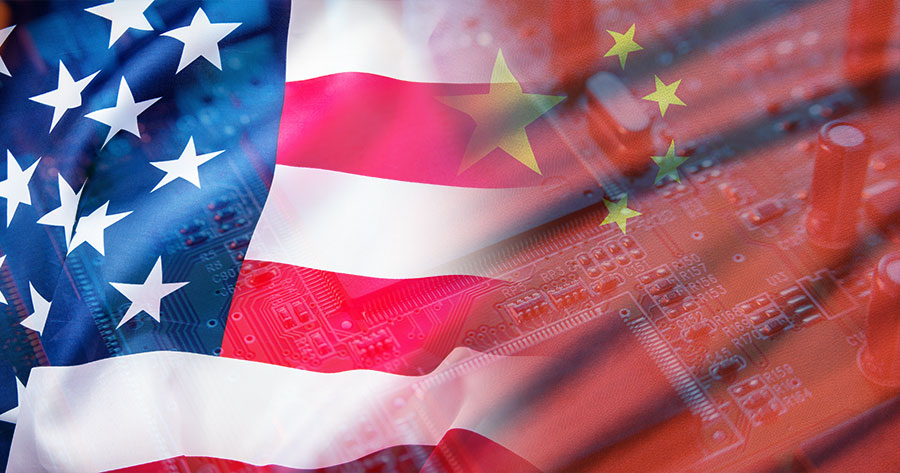US officials have reportedly delayed the issuance of licenses to semiconductor giants like Nvidia and Advanced Micro Devices (AMD) for the export of large-scale artificial intelligence (AI) accelerators to the Middle East. This move comes as part of a broader national security review of AI development activities in the region, according to individuals familiar with the situation.
The review, which lacks a defined timeline or specific criteria for determining shipment size, is especially targeting high-volume sales to nations like the United Arab Emirates (UAE) and Saudi Arabia, where there is a growing demand for AI data center chips.
AI accelerators, a category pioneered by Nvidia, play a crucial role in processing vast amounts of data required for AI applications such as chatbots and other tools, making them indispensable for companies and governments building AI infrastructure.
Following the expansion of chip export restrictions to include much of the Middle East by the US Commerce Department in October, companies have been required to obtain special licenses for exporting cutting-edge semiconductors and chipmaking tools to countries like Saudi Arabia and the UAE.
Recent reports suggest that US officials have either deferred or not responded to license applications under this regulation, impacting proposed sales to customers in the Middle East.
Major players in the semiconductor industry, including Intel and Cerebras Systems, are also affected by the licensing delays. These developments have had an impact on the stock market, with the share price of Nvidia dropping 3.77% yesterday to $1,105 per share and down another percent in an after-hours session.
The Commerce Department emphasized national security concerns and highlighted the importance of due diligence in reviewing advanced technology license applications.
One of the key apprehensions driving this scrutiny is the potential for China to circumvent restrictions and access American technology through data centers in the Middle East, while the Biden administration actively seeks to prevent China from acquiring advanced semiconductors and manufacturing equipment.
Countries like the UAE and Saudi Arabia are positioning themselves as AI leaders in the region to diversify their economies away from oil dependency.
Both countries have expressed their commitment to cooperating with the US to prevent Chinese involvement in their supply chains despite the fact that Saudi Arabia had recently partnered with China’s Lenovo Group to establish a research and development center in Riyadh.





